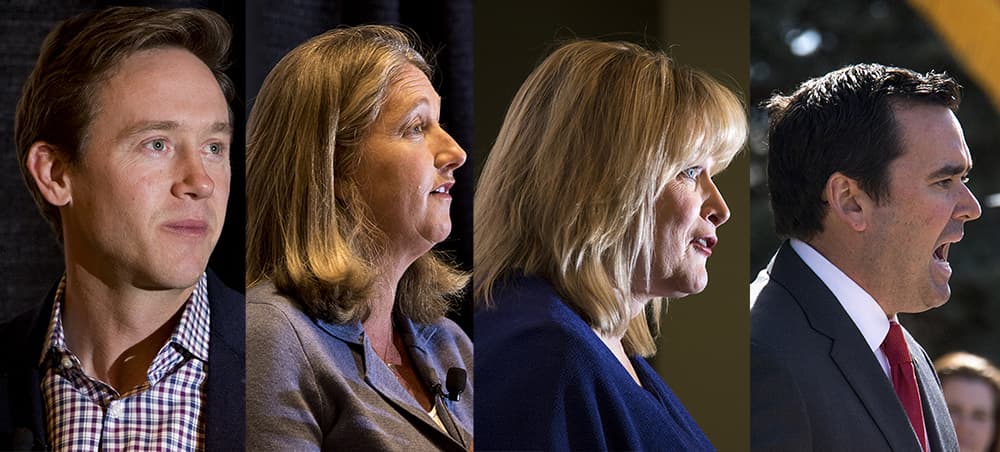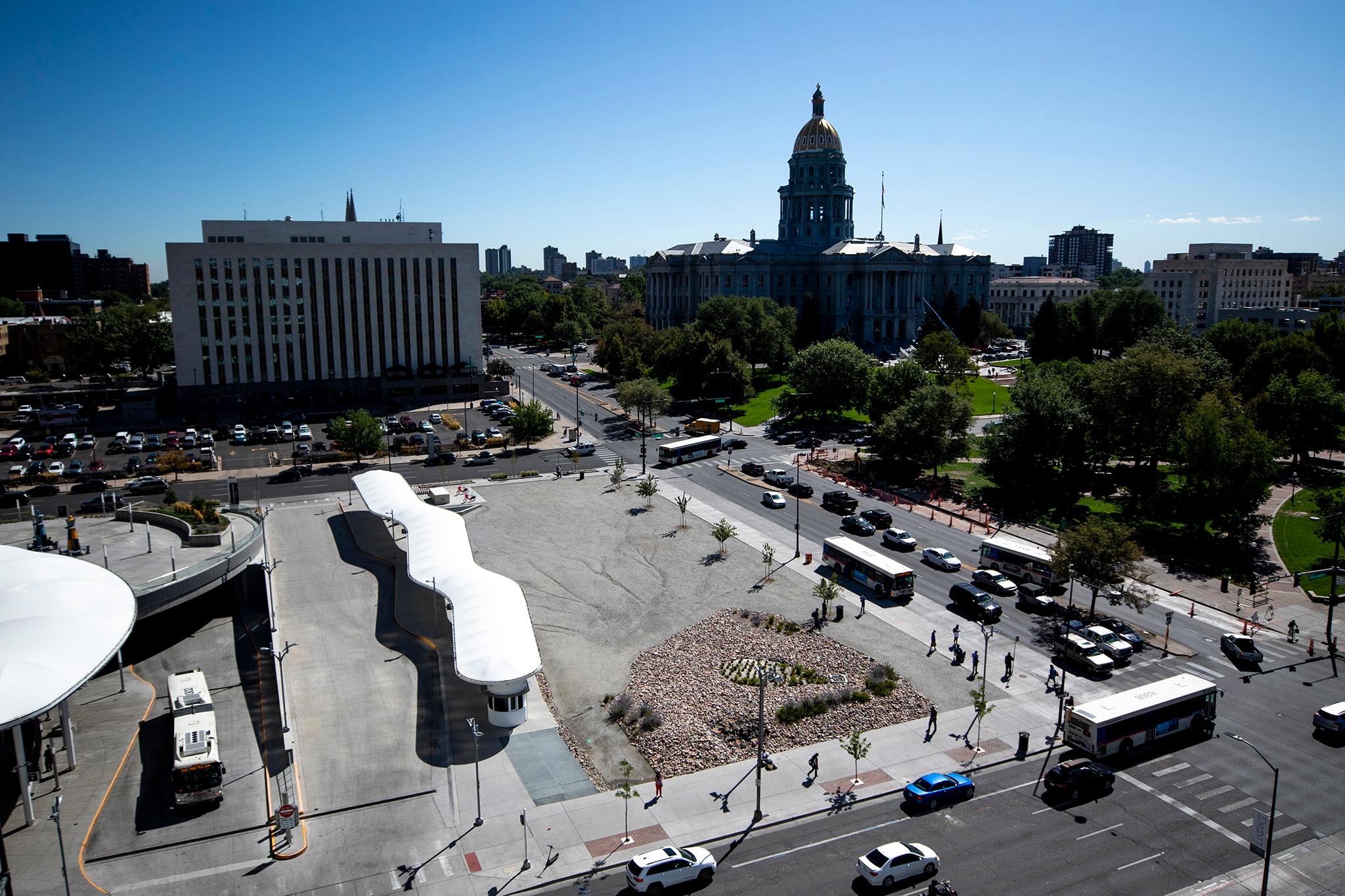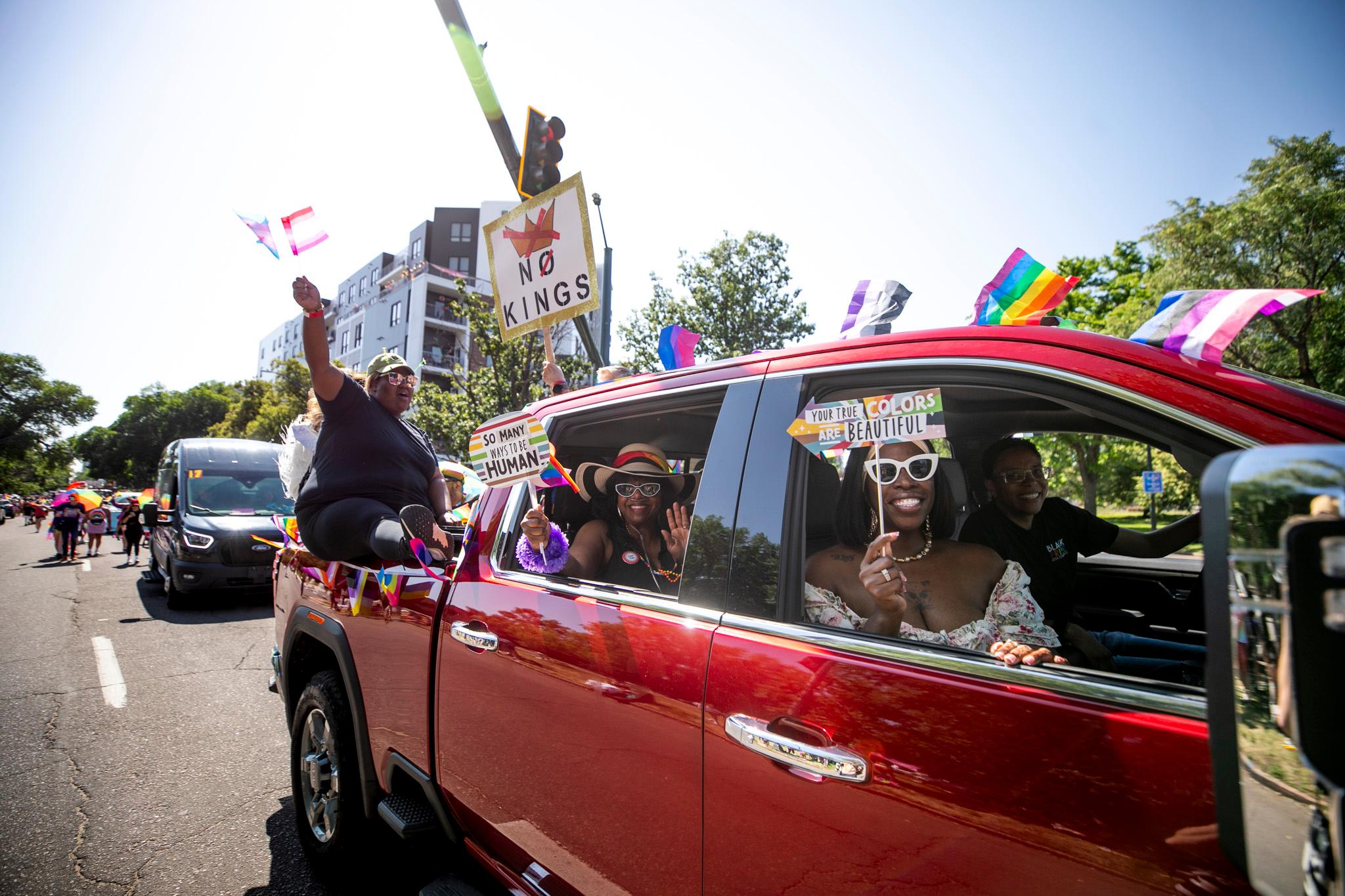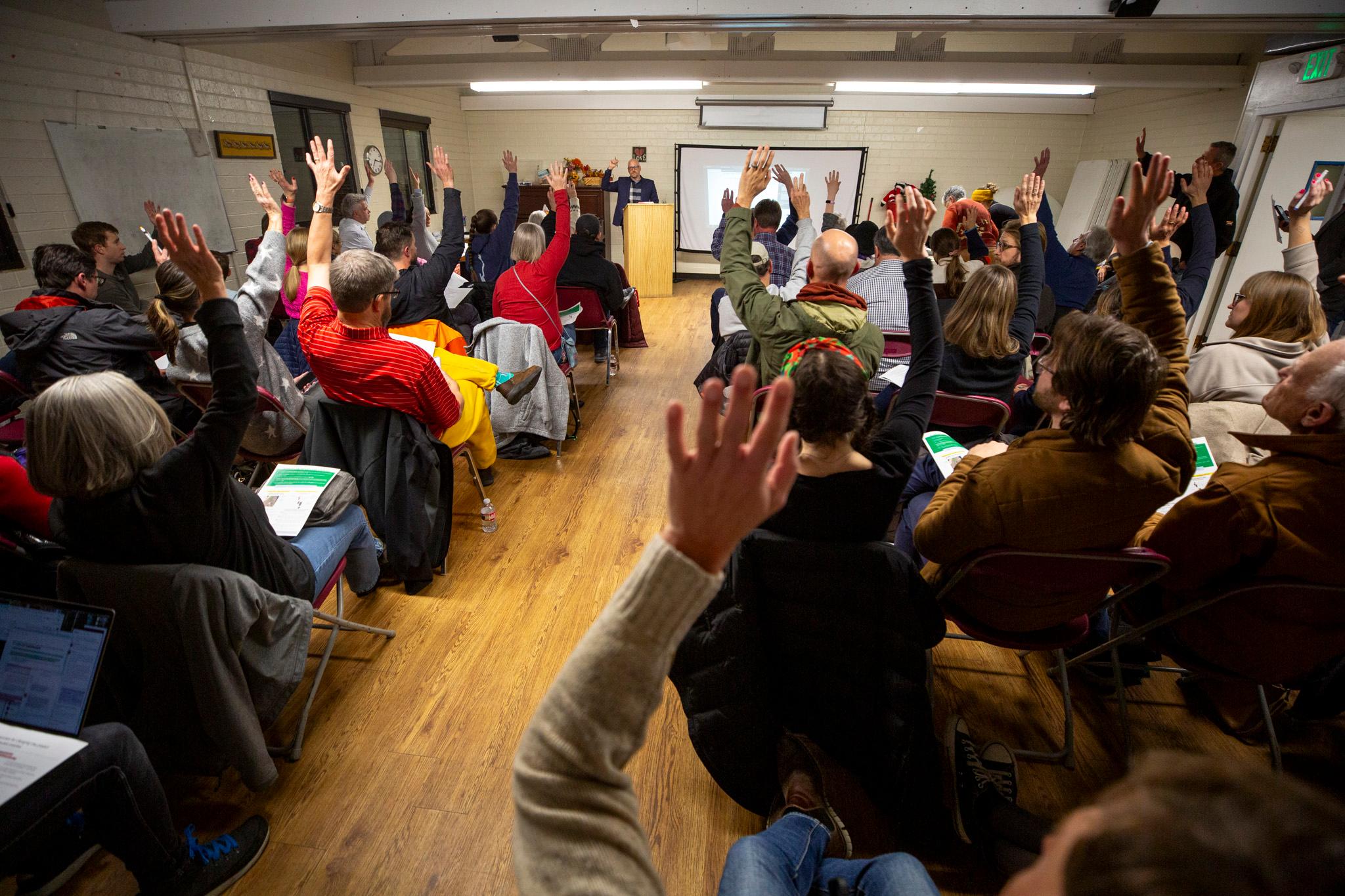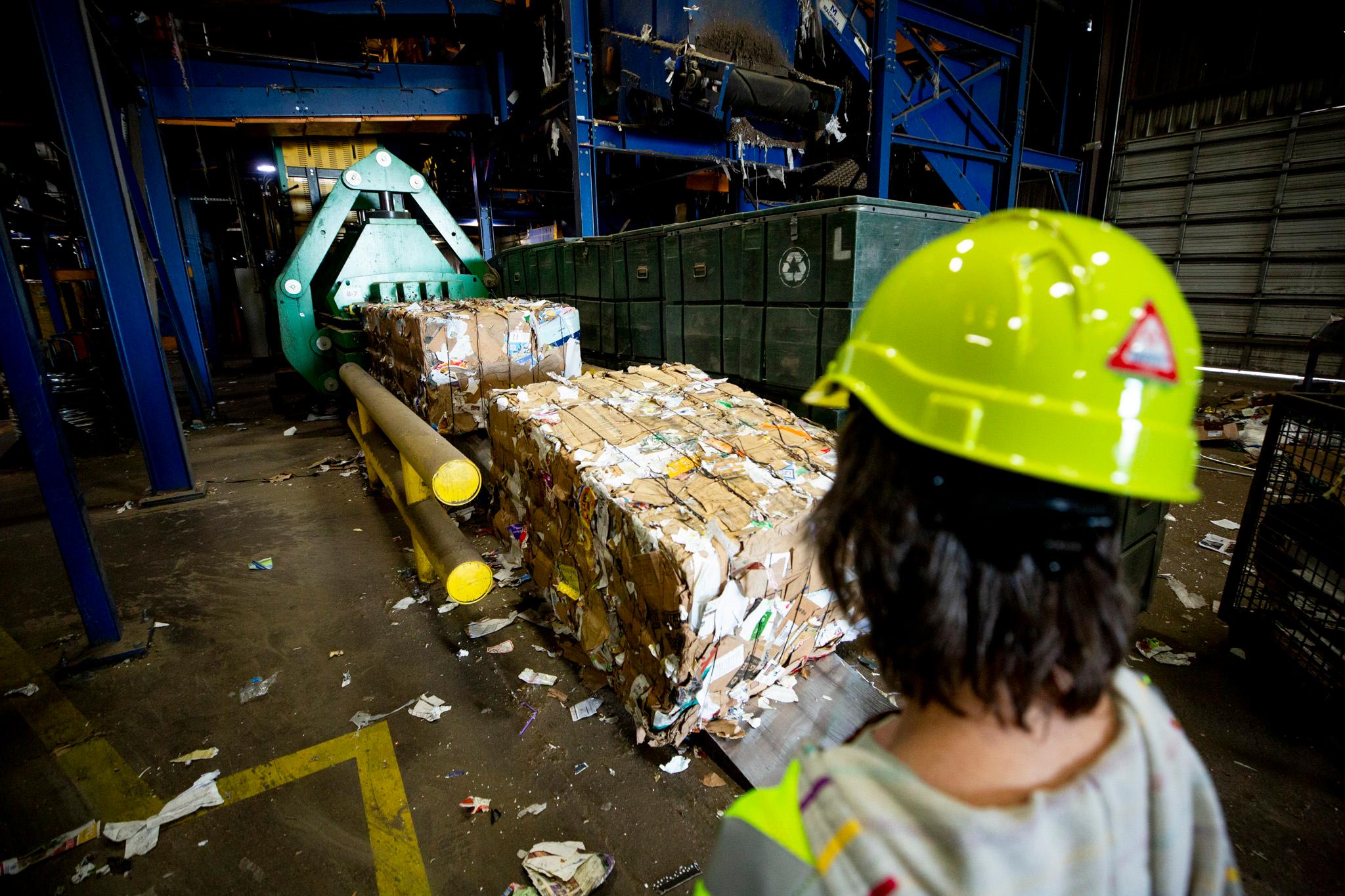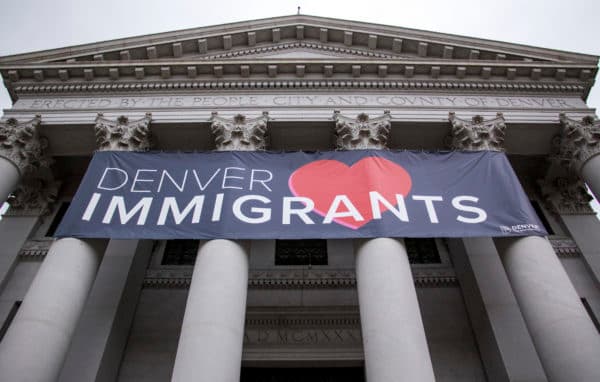
A bill targeting sanctuary cities like Denver that would allow people who are victims of crimes committed by undocumented immigrants to hold cities and local officials liable is scheduled for a committee hearing at the Colorado State Capitol on Wednesday. (A similar bill considered a year ago was rejected by lawmakers in the House.)
It's the latest example of how sanctuary cities, a non-legal term referring to cities whose local law enforcement don’t fully cooperate with federal immigration authorities, are once again at the forefront on the continual conversation of illegal immigration in Colorado. The subject will likely stay a hot topic as both major parties' primaries approach — and the state's candidates for governor are staking out their positions.
Two Republican candidates sent out campaign statements on sanctuary cities last week, including one prompted by the Denver’s Sheriff Department refusal to honor a detainer from Immigration and Customs agents for an undocumented immigrant arrested by DP in connection with a fatal hit-and-run accident, according to FOX 31. Denver does not honor ICE detainers. The topic was further pushed into the national spotlight after U.S. Attorney General Jeff Sessions sued California over its sanctuary city policies.
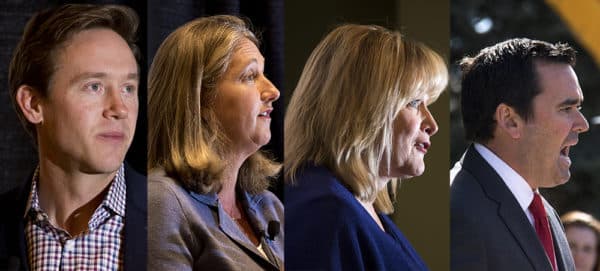
Republicans, unsurprisingly, don't like the idea of sanctuary cities.
Immigration appears to be an especially important topic among Republicans. A poll last week among likely Republican primary voters found 43 percent of respondents want their candidate to focus on enforcing immigration laws.
Stephen Barlock
A big supporter of President Trump, Barlock said in a statement he supports the president's quest to "secure our borders and stop illegal immigration. I am against chain migration and I am against the visa lottery. I am against any city or state that call themselves sanctuary. Any employer who is employing an illegal immigrant is committing a crime, any government that does not enforce the law is a corrupt government." Barlock was among the few candidates who submitted a specific plan to address sanctuary cities as governor: With authority from the state constitution, he would order the state's National Guard to work with ICE officials, "to enforce the laws around all court houses and jails in so-called Sanctuary cities."
Attorney General Cynthia Coffman
Coffman issued a release last week praising U.S. Attorney General Jeff Sessions’ lawsuit against California over state laws limiting cooperation with federal immigration authorities. “As governor, I will not allow Colorado to become a sanctuary state,” Coffman said in her statement. “I will push back against harmful sanctuary city policies and instruct our state’s law enforcement officials to hold illegal immigrants accountable.” Sanctuary city policies are, “disrespectful” to immigrants who followed the law, Coffman said. States who don’t enforce federal policies, “threaten the security of their communities,” she added.
Victor Mitchell
Mitchell's campaign said in an email that sanctuary cities are an important issue for him. He does not support sanctuary cities, saying in an April 2017 Facebook post: "No one is above the law. Sanctuary cities endanger Coloradans and blatantly violate our laws. We must cut off funding for sanctuary cities in Colorado, it is our duty to taxpayers to do so." Mitchell made similar remarks during a Dec. 19 speech in Fort Collins, per the Colorado Independent.
Doug Robinson
Robinson opposes sanctuary cities and believes Colorado should enforce immigration laws. "Sanctuary cities are unlawful, and Denver has, on multiple occasions, freed suspected criminals who have gone on to commit even more violent crimes," Robinson said in a statement. These actions, he continues, have "put at risk the safety of Coloradans. Colorado cities should not and cannot be allowed to continue to harbor criminal illegal immigrants."
Colorado State Treasurer Walker Stapleton
The Republican frontrunner does not support sanctuary cities. In an campaign email titled "End Sanctuary Cities Now!" sent March 7, Stapleton’s campaign said, “the proliferation of Sanctuary Cities is a direct threat to our safety in Colorado.” His response appears to have been prompted by the Denver Sheriff’s Department’s refusal last week to cooperate with ICE agents on a hit-and-run suspect. Stapleton’s email cites this as an example of why sanctuary cities, “have to end” in Colorado, vowing to stop this practice.
The Democratic candidates support sanctuary city policies, saying they help promote working with the criminal justice system.
Democrats mentioned community safety, too, but for a different reason. Some see sanctuary cities as a way to ensure immigrants cooperate with local law enforcement.
Noel Ginsburg
"Codifying" Colorado as a sanctuary state is something Ginsburg supports, though he said in a statement that it should be an "intermediary step" to create a long-term solution. "Leadership in Washington has been unable to craft a coherent immigration policy that provides our global community real opportunities to migrate legally," Ginsburg said in his statement. "We should not encourage people to come here illegally, but we must have a more progressive immigration system that creates real pathways for people who are looking for a better economic future to come to America." Ginsberg said as governor, he would urge congressional representatives to support, "holistic immigration reform." He believes companies who pay people under the table or exploit migrant workers should be held accountable.
Mike Johnston
Johnston said in a statement Monday that he would continue honoring the country’s “commitment to inclusion” if elected governor. “I support sanctuary policies that prevent sharing information with ICE on minor crimes and misdemeanors, so that the folks who are playing by the rules and helping to drive Colorado’s economic growth don’t have to live in fear,” Johnston said. He does, however, believe there are exceptions to the rule. This include instances when a, “serious or violent crime,” take place and there’s a threat to public safety. “And in those rare circumstances, I would share information with ICE,” Johnston said in his statement.
Cary Kennedy
“Local and state law enforcement should not be required to enforce federal immigration laws,” Kennedy, the former state treasurer, said in a statement this week. Kennedy said that in order to keep Colorado communities safe, everyone needs to feel, “safe and able to report crimes,” including child abuse, drunk driving and domestic violence by visiting police stations and courthouses. People need to be able to visit these places, “without the fear of them or their loved ones being turned over to ICE,” Kennedy said.
Lt. Gov. Donna Lynne
Lynne said in a statement Monday that she supports local governments taking steps to ensure community safety, which she said includes making sure immigrants and refugees feel safe in reporting crimes when they contact local police and sheriff's offices. "As governor, I will work to make sure that all immigrants feel welcome in our state, and I will make sure we dedicate sufficient resources to ensure that they have the opportunity to be contributing members of our Colorado community," Lynne said. She added that it's time for Congress to pass comprehensive immigration reform and provide relief to Dreamers.
U.S. Rep. Jared Polis
Polis wants cities to have their say on sanctuary city status. His Colorado spokesperson Mara Sheldon sent the following statement on Monday: "Jared believes it is up to local communities to decide how they use their law enforcement resources. He has always stood up to the Trump administration’s efforts to use Washington DC bureaucrats to tell our police what to do." In Congress, Polis voted against the President Trump-backed "No Sanctuary for Criminals Act" in June 2017. The bill passed in the House and would make sanctuary cities ineligible for federal grants.
Correction: The name of one of the candidates was incorrect in an early version of this story. The correct name is Noel Ginsburg. The story has been changed to reflect this.

